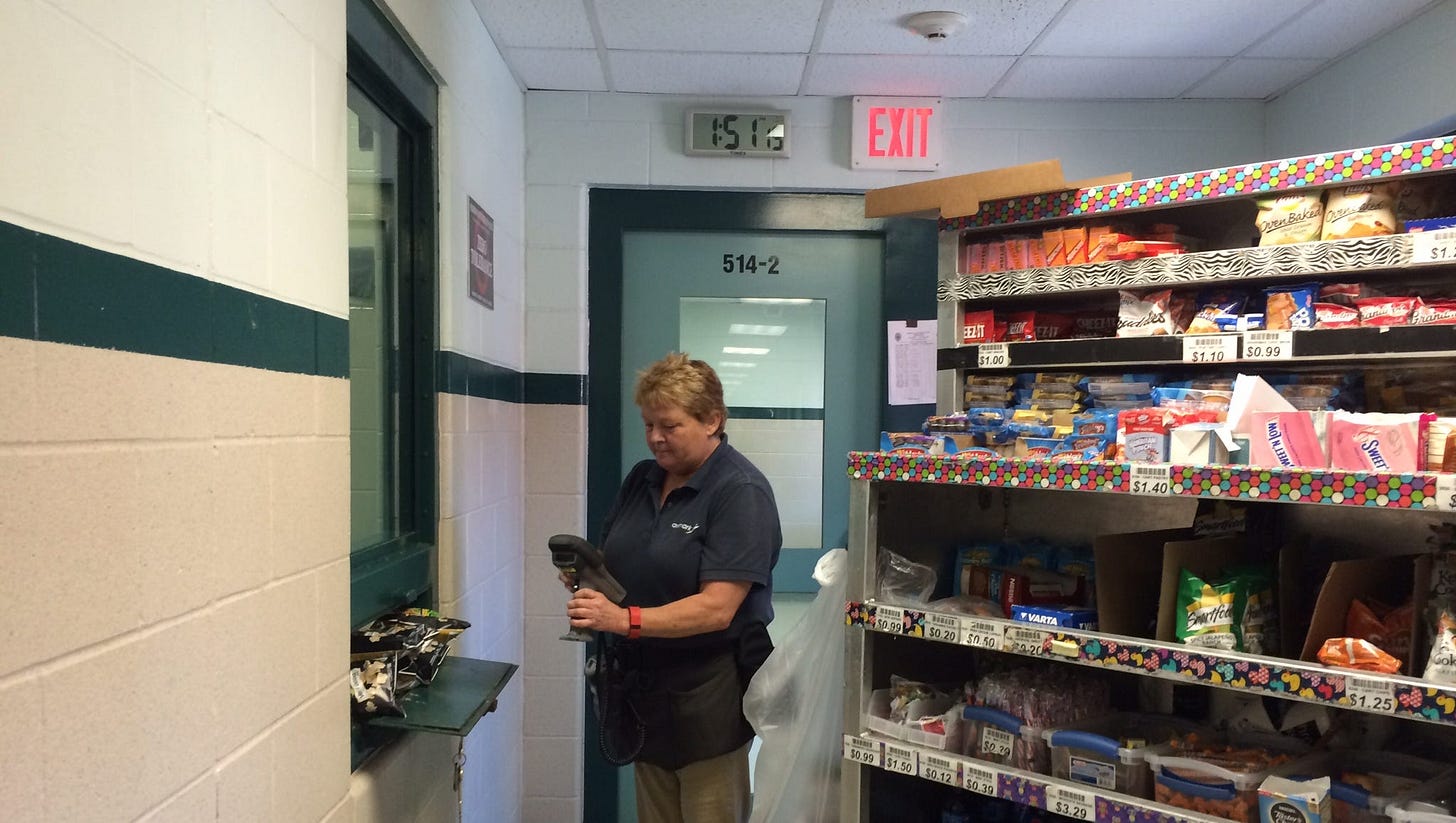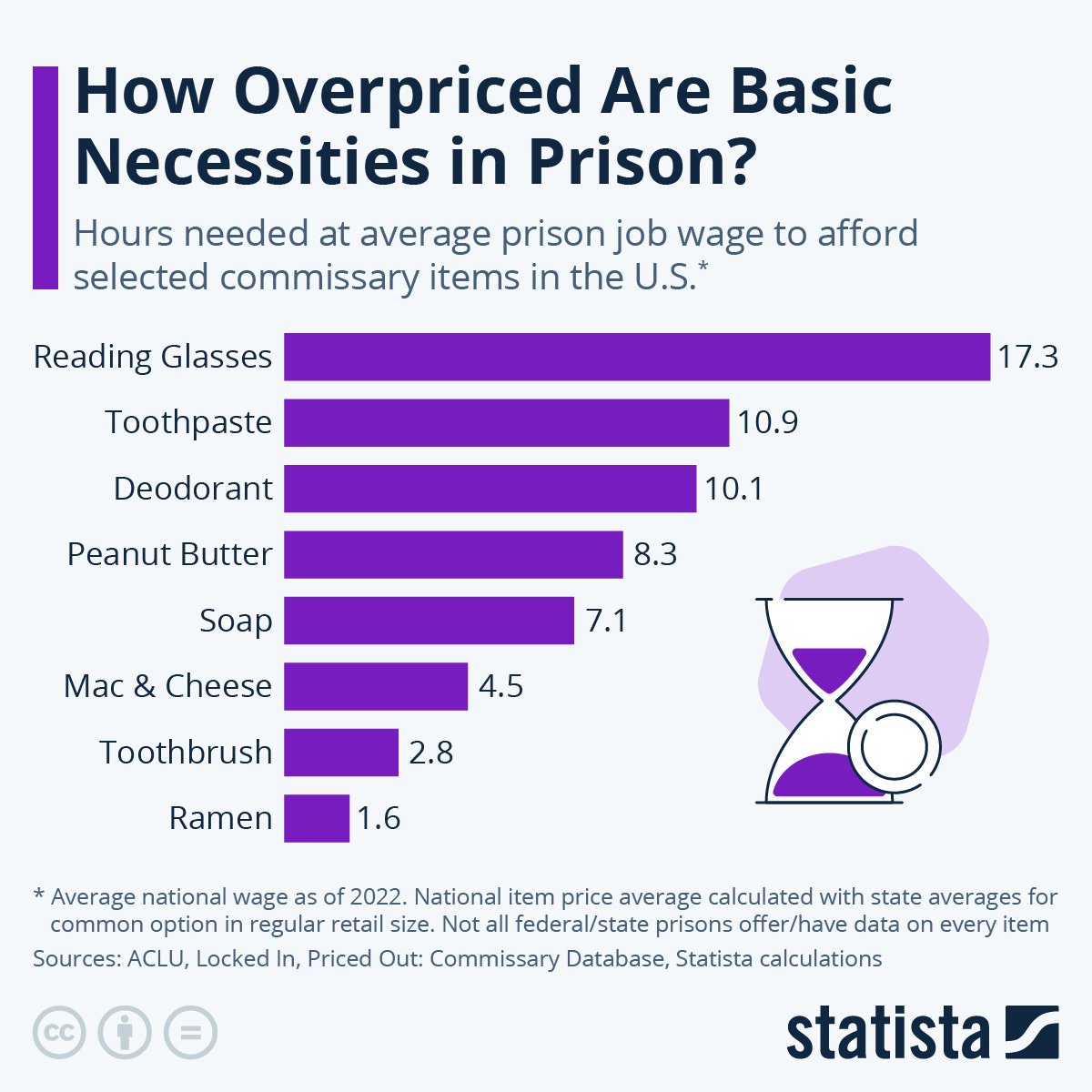Notes from the edge of civilization: August 11, 2024
Why does basic income persist as an idea; what inflation feels like behind bars; and Paris gets the gold medal for taking the piss.
This week we wrote about how universal basic income is a bad idea that just won’t quit.
Unsurprisingly, we were not the only ones weighing in on the subject. Lance Roberts of Real Investment Advice wrote a great article entitled ‘UBI – Tried, Tested And Failed As Expected,’ which came to the same conclusion that we did, albeit far more eloquently:
In its essential framework, a universal basic income sounds excellent. It would ensure that everyone has fundamental needs covered. Then, they can go out and produce and not worry about covering critical bills. Unfortunately, the additional income is quickly absorbed into the economy as prices rise (inflation) to compensate for the extra spending. After the first year, the UBI would have to be increased or no longer have any benefit.
Therein lies the trap with all socialistic programs.
While UBI, along with free healthcare, education, childcare, etc., sounds great, they are NOT productive investments with a higher return than the carrying cost of the debt. History suggests these welfare supports have a negative multiplier effect on the economy.
Most telling is the inability of the current economists, who maintain our monetary and fiscal policies, to realize the problem of trying to “cure a debt problem with more debt.”
The Keynesian view that “more money in people’s pockets” will drive up consumer spending and boost GDP has been wrong.
It hasn’t happened in 40 years.
We fear these socialistic programs, which promise “free everything” with no consequences, instead deliver inflation, generate further income inequality, and ultimately increase social instability and populism. Such has resulted in every other country running such programs with unbridled debts and deficits.
Are we the only ones who see Weimar Germany on the horizon?
Inflation — and the knock-on affect of high prices — got you down? Think how much worse it would be if you had to pay for items in a prison commissary.
Statista’s Florian Zandt reports that inflation is an issue on the inside, along with added premiums imposed by the prisons themselves.
For example, a packet of instant ramen by the brand Maruchan currently costs $0.20 at Walmart, while commissaries in state prisons around the country charge as much as $0.65 for the same serving size. This is according to data aggregated by reporters Elizabeth Weill-Greenberg and Ethan Corey at The Appeal for the first-ever database on commissary prices in the U.S. This premium is hard to bear for many prisoners due to average prison job wages topping out at a maximum of $0.52 per hour as evidenced by an ACLU report from 2022.
Here’s how many hours an average incarcerated person has to work to afford basic items at the commissary.
Speaking of prisoners, in His Majesty’s Prison Great White North — also known as Canada — Canadians must surely sympathize with prison wages, based on how much they pay in taxes.
An article in Citizen Watch Report shows:
The Fraser Institute’s 2024 edition of the Canadian Consumer Tax Index reveals that the average Canadian family spends a significant portion of its income on taxes. In 2023, the average Canadian family earned an income of $109,235 and paid $46,988 in total taxes, which amounts to 43.0% of their income. In comparison, the same family spent $38,930 (or 35.6% of its income) on basic necessities such as food, housing, and clothing.
Oh, Canada.
And finally, to wrap things up, Collapse Life would like to propose that the Paris Olympics get the Gold Medal for mockery.
Bad enough to perversely mimic the Last Supper with misfits and gender benders, but turning breakdancing into an Olympic sport? Really?
To make matters worse, it was the Aussie female competitor in breakdancing that led us to the conclusion that Paris was actually one big fat middle finger to the world.
Hard to believe Rachel ‘Raygun’ Gunn (now that’s a clever moniker) was the top breakdancer from ‘Down Under’ because, there she was, representing Australia with a series of awkward writhing contortions and gyrations that were more akin to an ischemic event than a form of competitive street dancing, with a bit of wounded Kangaroo thrown in for good measure.

Goodbye Paris 2024, don’t let the door hit you on the way out.





"While UBI, along with free healthcare, education, childcare, etc., sounds great, they are NOT productive investments with a higher return than the carrying cost of the debt. History suggests these welfare supports have a negative multiplier effect on the economy." - Healthcare isn't about the economy - it's about helping sick people get better and well people not fall sick. Education isn't about the economy, it's about knowledge and improvement and opportunity, Childcare isn't about the economy, it's about the village that raises the next generation.
Yes - UBI will lose benefits over time if it is wiped out by inflation... Exactly like wages. That's a problem with the system, not UBI. We're seeing the exact same with people's salaries.